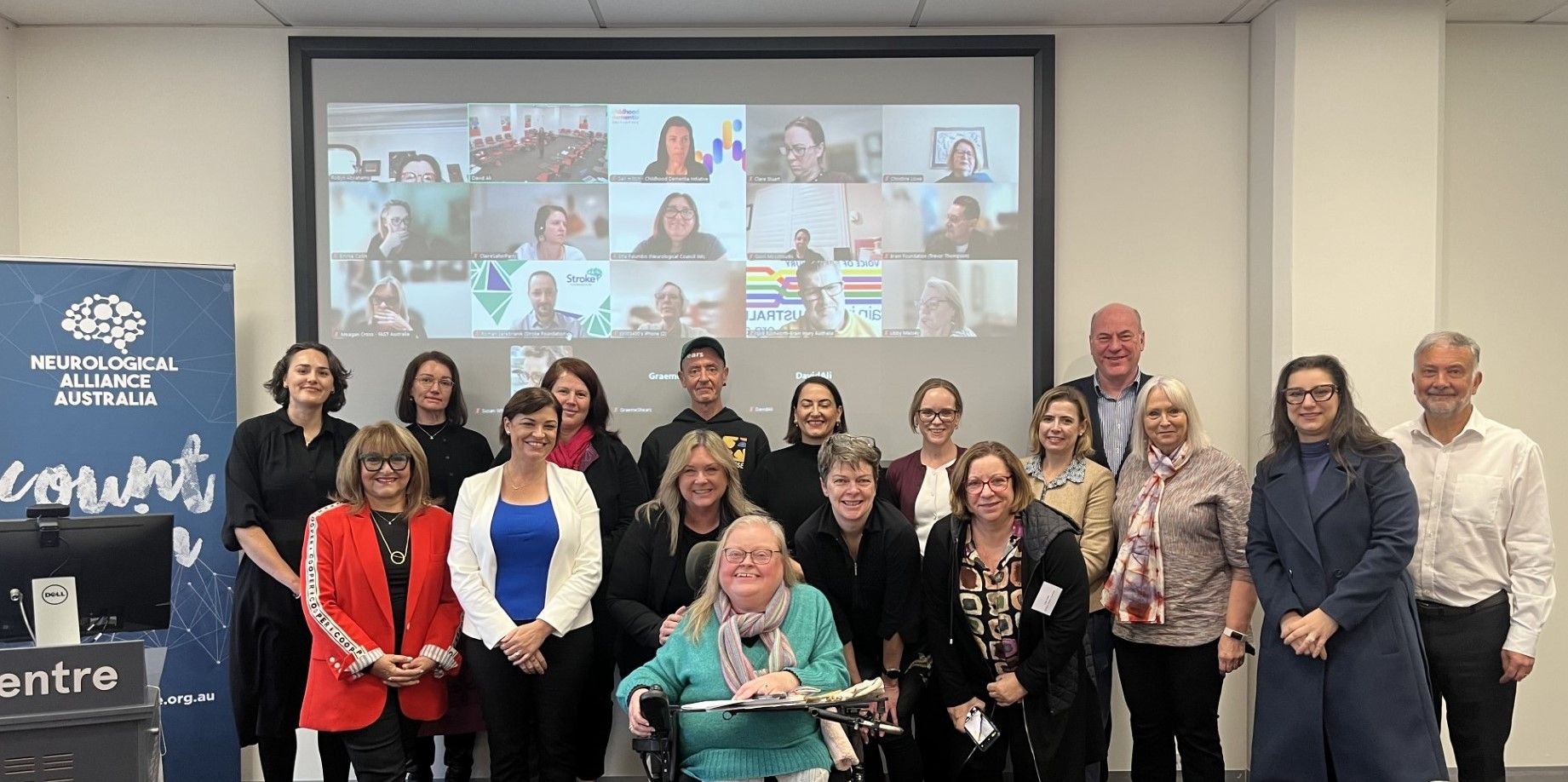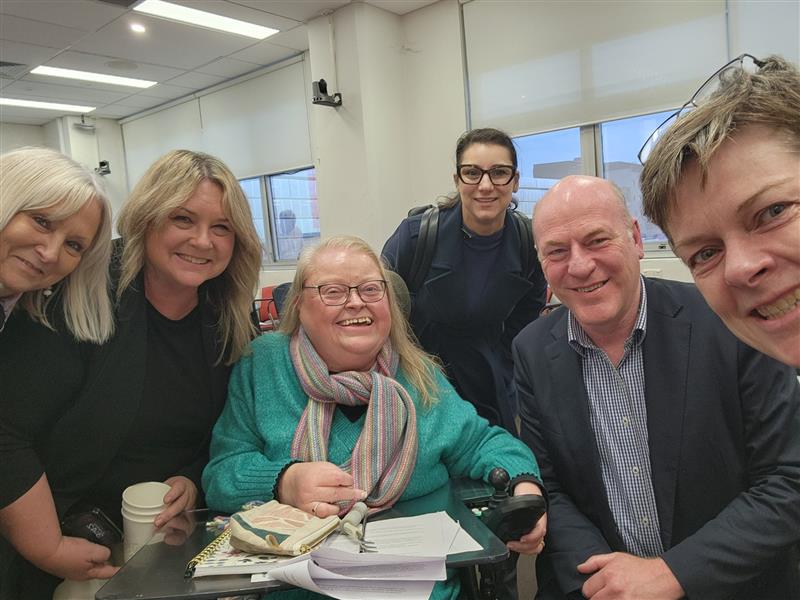Neurological Alliance Australia Collaborate for Change
Written by Carolyn Campbell-McLean, MDNSW, 18 June 2025

Did you know… neurological conditions, which include neuromuscular conditions, are the fifth largest disease group in Australia following cancer, mental health, musculoskeletal and cardiovascular conditions?
“The sad truth remains that neurological conditions, as a disease group, have simply not been given the resources, and the recognition that the other leading disease groups (eg, cancer and CVD) have, quite rightly, been accorded.”
Greenland and Kiernan, 2025
The Neurological Alliance Australia (NAA) has formed to push for better policy, research, treatment and services for the over seven million Australians living with neurological and neuromuscular conditions. While Australia endorsed the WHO Global Action Plan for Epilepsy and other Neurological Disorders, a national action plan is still needed.
In May, 36 representatives from industry, academia, condition-specific organisations and other collaborators gathered at the University of Sydney’s Brain and Mind Centre. The goal? To develop a blueprint for a national action plan for neurological conditions. The group included a former member of parliament who offered sage advice on strategies to harness the attention of government.
Neuromuscular conditions were represented by:
- Carolyn Campbell-McLean – Senior Community Support Specialist with lived experience, Muscular Dystrophy NSW
- Rachel Spencer – National Advocacy Lead, Muscular Dystrophy Foundation Australia
- Catherine Stace – CEO, Muscular Dystrophy Australia (Victoria)
- Paul Bugeja – Board Member with lived experience, Muscular Dystrophy Australia
- Myositis Association

The group drafted a call for a government commitment to reducing health inequities faced by Australians living with neurological and neuromuscular conditions. Key priorities include:
- Promote awareness, understanding and health literacy
- Strengthen prevention, early intervention, early diagnosis, treatment and degeneration
- Ensure equitable access to quality, person-centred lifelong care irrespective of age and location
- Provide practical and emotional support for carers and families
- Drive innovation in research, national data collection and assistive technologies.
The workshop was a powerful opportunity to share lived experiences, and advocate for the needs of people living with neuromuscular conditions and their families.
It was also way to network with other like-minded people from MS Australia, Parkinson’s Australia, Dementia Australia, Epilepsy Action Australia and the Mito Foundation. The second workshop will be held on 22 July – World Brain Day 2025 – with the goal of finalising the blueprint for presentation at Parliament later this year.
We will keep you updated on progress!
